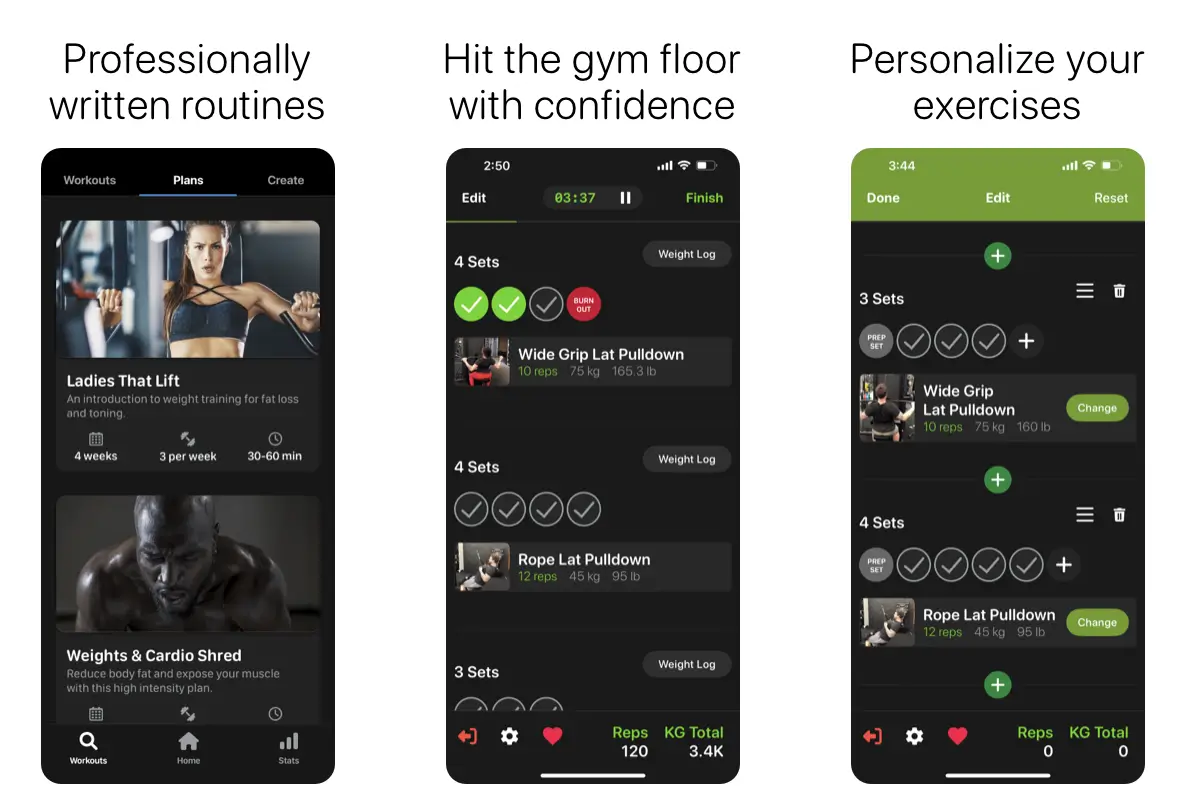Progressive overload is the process of gradually increasing the weight, frequency, or number of repetitions in your strength training routine. This challenges your body and allows your musculoskeletal system to get stronger. If your single goal when going to the gym is to become stronger but you feel like you’ve hit a bit of a plateau, these 5 tips can help to kick-start your progress again.
- Hold Your Last Rep
Say you’re doing deadlifts, instead of hitting your last rep and immediately dropping the bar to the floor, hold the final rep for as long as you can. Doing this will tap into your grip strength massively, allowing you to hold more weight for longer periods. This will work your strength while you’re in a more fatigued state too, resulting in better grip grip strength when you’re fresher. The hold technique will also transfer over nicely to exercises like pull-ups where grip is an issue. - Do Pause Reps
This technique will give you strength in the key positions of your lifts. The sticking point (where you slow down) is your weakest link in a lift and the point where you tend to fail or struggle. To gain strength, train your sticking points. Bench press for example, hold the bar for 2–3 seconds just above your chest before pressing to lockout on each rep. This is a great strength enhancer, control your lifts, don’t just move them. - Load & Slow Your Negative
By slowing down the negative portion of your lift (the lowering phase of an exercise), you’ll create more hypertrophy in the given muscle as you’ll create more micro tears! You can also handle about 1.3x more weight on the eccentric phase, as it is the strongest part of the lift! Take bicep curls for example…try slowing down your lowering phase to about 3–5 seconds per rep and get ready for the arm gains! - Rest MORE
There’s more to consider than reps and how much weight to lift. Another important factor is rest time between sets. If you’re looking to get stronger, allow your body to recover properly by giving it a minimum of 2 minutes rest, up to a max of 5 minutes between each set. This will allow you to perform at the right intensity and rate of exertion on each set of your lifts as you allow your strength systems to recover adequately. Any less than this and you’re tapping into more muscle building or endurance training. Your body has a very small phosphagen reserve (the energy system used for heavy strength work), which lasts about 15 seconds. It takes your body about 3 minutes to fully replenish phosphagen stores. - Lower The Weight (No Typo)
Probably the biggest thing you can change (and should) is perfecting your lifts. Instead of cranking out reps with awful form that don’t leave a lot of room for more progression, look to only increase weight only when you’re happy with your form. Keeping your body in the right alignment will allow it to perform to it’s best capabilities, meaning it’s stronger. If you’re lifting with poor form, chances are you’ll have weak links in your lift that will only hold up for so long before injuries. Solid form will make faster progressions in your weights than just cheating, swinging, using momentum, bad posture ever will.
Other Notable Tips
- Recover just ass hard as you train. Dial in your recovery protocols and nutrition to heal, repair and progress.
- Warm up correctly, stiff joints will have limited range of motion.
- Have dial-back weeks where you lower the weight loads and allow your joints, ligaments and muscles to recover from the constant heavy loads. Try this every 8-10 weeks.

Rep by rep you'll experience what proper gym training can do.
Save time structuring your routines and avoid making mistakes with your workouts.
With exercise tracking, progress monitoring and the ability to modify existing workouts.
Crush your goals and achieve more than you thought possible.
Start training with us today and unlock a fitter, stronger and healthier you!

